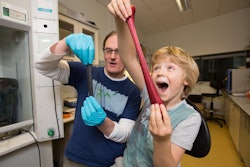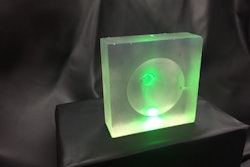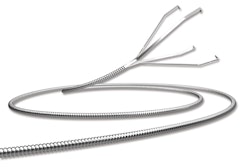
A December 12th article from Medical Plastics News highlighted an innovative programmable approach to organ fabrication. Researchers at the Wyss Institute for Biologically Inspired Engineering at Harvard University have created an entirely 3D-printed heart with integrated sensing.
This breakthrough could allow researchers to quickly design organs-on-chips to match properties of a specific disease or a patient’s cells for data collection. The organs imitate the structure and function of native tissue via six different inks that integrate soft strain sensors within the microarchitecture of the tissue. They could be a promising alternative to animal testing, because they can be quickly fabricated with customizable sizes, shapes, and other physical properties.
"Translating microphysiological devices into truly valuable platforms for studying human health and disease requires that we address both data acquisition and manufacturing of our devices," said Kit Parker, professor of bioengineering and applied physics at SEAS. "This work offers new potential solutions to both of these central challenges."






















